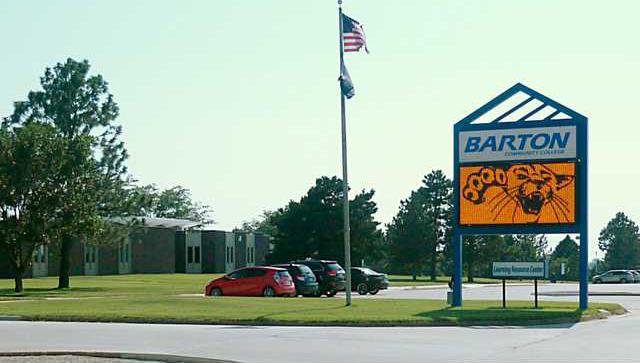At Kansas colleges and universities, remedial prerequisite courses in foundational classes will be done away with by fall 2026, said Barton Community College’s Executive Director of Foundational Education, Stephanie Joiner. The Kansas Board of Regents (KBOR) wants schools to implement an updated system and move to corequisites.
The prerequisite system means a student with a low placement score in math or English first has to pass a remedial course before enrolling in the regular course for college credit. With a corequisite course, the student takes a class that combines the remedial work with the regular coursework.
A corequisite course may require more credit-hours than the regular course and those extra credits won’t count toward a degree.
“The state of Kansas is changing; we’re in a state of flux,” Joiner said at the Sept. 24 BCC Board of Trustees meeting. “By the fall of 2026 we will no longer have prerequisites.” Studies show more students who needed remedial work in the Composition I course were successful if the work was embedded into the regular material. Barton’s success rate – defined as a student earning a grade of C or better – has been increasing, even before KBOR changed the rules.
“In 2022 we opened the Academic Development Center on campus,” Joiner said. The center offers several supports, including academic coaching. Students have checked in at the ADC nearly 8,500 times and students who use the center on a weekly basis have an average Grade Point Average of 3.51.
Fundamental Skills
Barton’s Board of Trustees sets policies based on a set of over-arcing goals called ENDS. Joiner spoke during a monitoring report on END 1 - Fundamental Skills.
END 1 is presented with these statements:
• Students will acquire the skills needed to be successful for the program they are in.
• Students will have the fundamental skills to succeed in the workplace.
• Students will have the fundamental skills to lead productive lives.
• Students will be provided remediation as needed.
Other Barton staff joining the monitoring report were Melissa Feist, coordinator of Adult Education, and Jo Harrington, a mathematics instructor who is also coordinator of Assessment.
Workplace skills
Feist said Adult Education offers Adult Basic/Secondary Education:
• A Kansas high school diploma program
• Accelerating Opportunity: Kansas (AO-K), a partnership that combines earning a high school diploma with career technical education to earn a technical certificate
• Academic skill development/improvement
• Workforce preparedness
Last year Barton’s Center for Adult Education served 130 students and as of Sept. 11 for Fiscal Year 25 it has served 61 students.
Productive lives
Harrington said fundamental learning outcomes direct the general education courses and the entire curriculum.
These outcomes include critical thinking, life-long learning, historical perspective, technological perspective and cultural perspective. He shared data on how well these outcomes are met based on what percent of students correctly answer a test question designed to teach it. Using assessment data, faculty have employed strategies that are effective in supporting instructional quality and student engagement. These include assigning less reading and more “doing” activities, and other methods to make the lesson personal.





